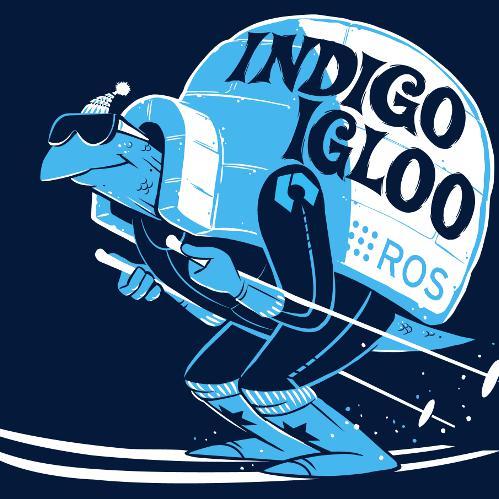Known attempts to build autonomous robots rely on complex control architectures, often implemented with the Robot Operating System platform (ROS). Runtime adaptation is needed in these systems, to cope with component failures and with contingencies arising from dynamic environments-otherwise, these affect the reliability and quality of the mission execution. Existing proposals on how to build self-adaptive systems in robotics usually require a major re-design of the control architecture and rely on complex tools unfamiliar to the robotics community. Moreover, they are hard to reuse across applications. This paper presents MROS: a model-based framework for run-time adaptation of robot control architectures based on ROS. MROS uses a combination of domain-specific languages to model architectural variants and captures mission quality concerns, and an ontology-based implementation of the MAPE-K and meta-control visions for run-time adaptation. The experiment results obtained applying MROS in two realistic ROS-based robotic demonstrators show the benefits of our approach in terms of the quality of the mission execution, and MROS' extensibility and re-usability across robotic applications.
翻译:已知的建立自主机器人的尝试依赖于复杂的控制结构,通常与机器人操作系统平台一起实施。这些系统需要运行时间调整,以应对部件故障和动态环境引起的意外,否则会影响任务执行的可靠性和质量。关于如何在机器人中建立自我适应系统的现有建议通常要求对控制结构进行重大重新设计,并依靠机器人界所不熟悉的复杂工具。此外,它们很难在各种应用中再利用。本文介绍了MROS:基于ROS的机器人控制结构运行时间调整的示范框架。MROS使用各种域名语言组合来模拟建筑变体和捕捉任务质量问题,以及基于理论的MAPE-K和元控制愿景实施运行时间适应。实验结果将MROS应用于两个现实的ROS机器人示威者,显示了我们在任务执行质量方面采用的方法的好处,以及MROS在机器人应用方面的可扩展性和可再使用性。





